Explore all Autism Education Trust Resources, from phase specific teaching tools to parent guidance and more.
Browse all resources
Filters
Progression Framework Resource
A comprehensive interactive assessment tool that supports practitioners to identify learning priorities, set key learning intentions, and track progress for autistic children and young people in both mainstream and specialist educational provisions.

Early Years Transitions Parent Guide – Part 3
This guide is part three of a three-part resource, offering parents and carers a Toolkit packed with useful resources designed to make it easier to support your child with early years Transitions.
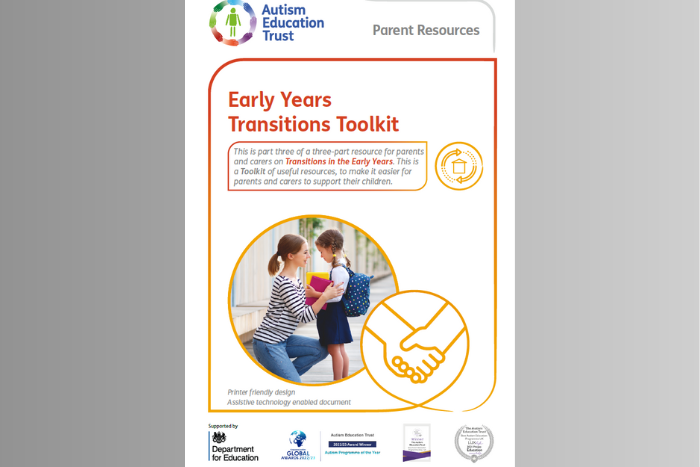
Early Years Transitions Parent Guide – Part 2
This guide is part two of a three-part resource and offers practical strategies and tips to parents to help their child navigate transitions across different settings and within the same setting during their early years.
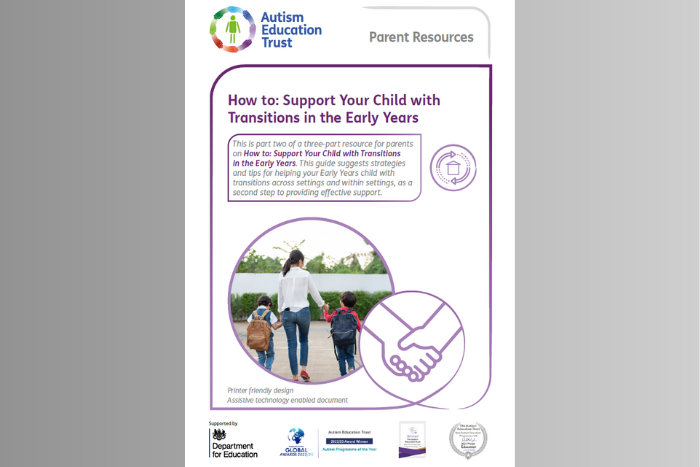
Early Years Transitions Parent Guide - Part 1
This guide is part one of a three-part resource, designed to support parents in understanding how autism may affect their child's transitions during the crucial early years of life, from birth to five years old.
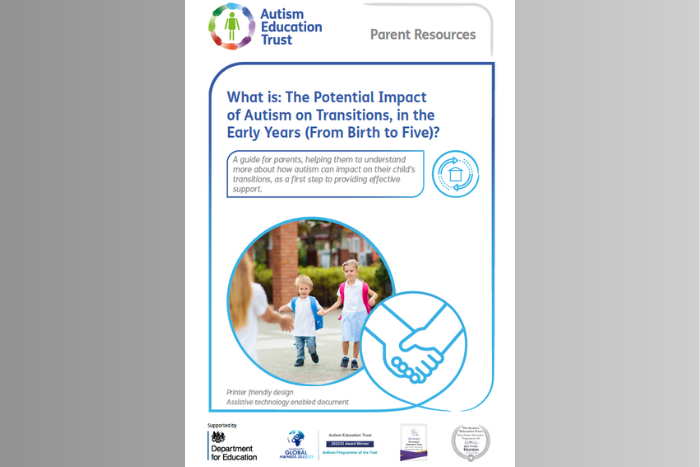
Why Autism is a Difference, not a Deficit
Watch our free video: promoting a wider understanding that autistic people have strengths and differences in three key areas of development.
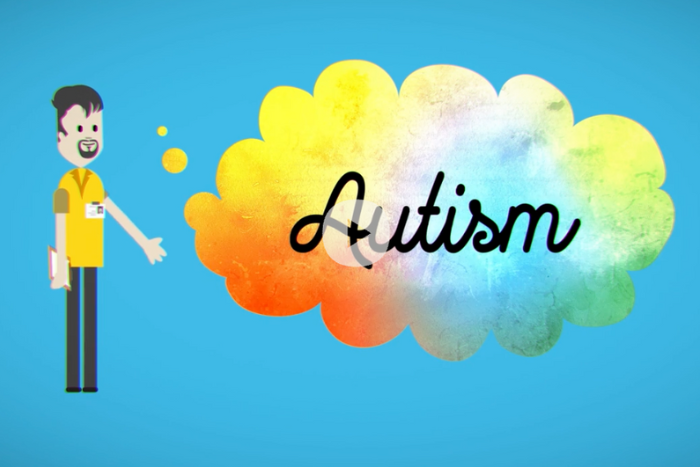
Post-16 Competency Framework
A post 16 autism competency framework for people working with young autistic people.

School Transitions Parent Guide – Part 1
This guide is part one of a three-part resource, designed to support parents in understanding how autism may affect their child's transitions from age five to sixteen.
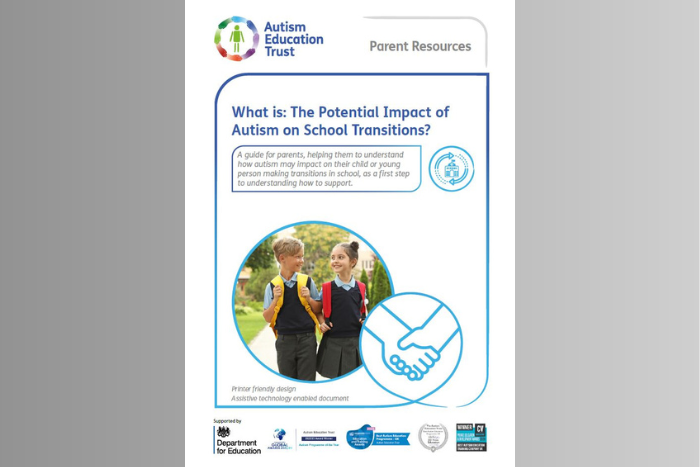
School Transitions Parent Guide – Part 2
This guide is part two of a three-part resource and offers practical strategies and tips to parents to help their child navigate transitions between settings and academic phases, from ages five to sixteen.
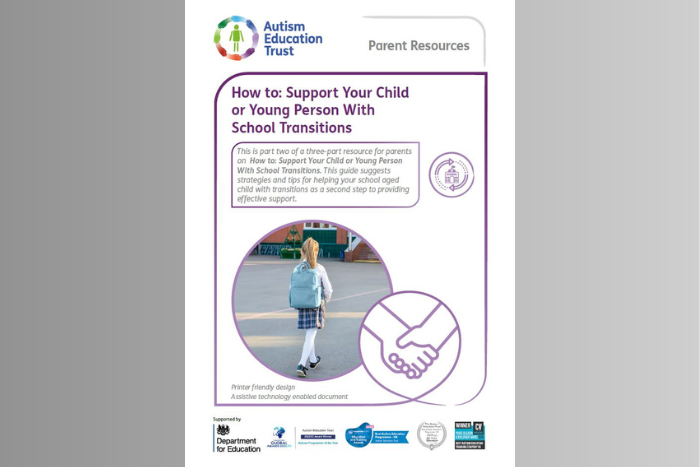
School Transitions Parent Guide – Part 3
This guide is the final part of a three-part resource, offering parents and carers a Toolkit packed with useful resources designed to make it easier to support your child with School Transitions.
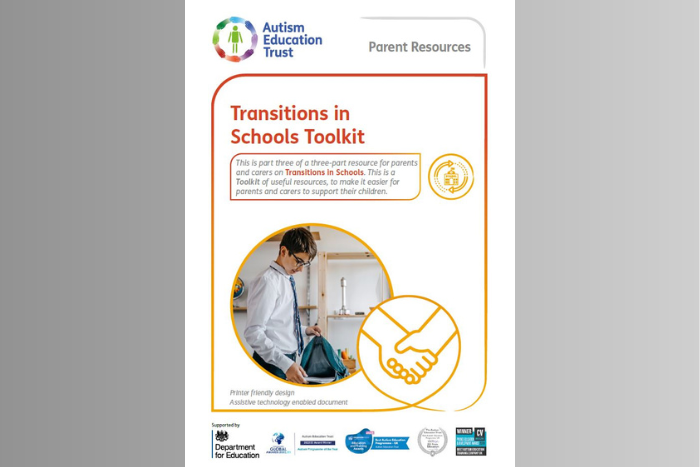
School Exclusions: A Guide for Parents
Common reasons for increased stress and anxiety together with strategies to overcome barriers to inclusion.

Self-Advocacy Toolkit
This toolkit starts by placing the autistic young person at the centre, then systematically delves into different areas of life to help them become adept at self-advocacy.
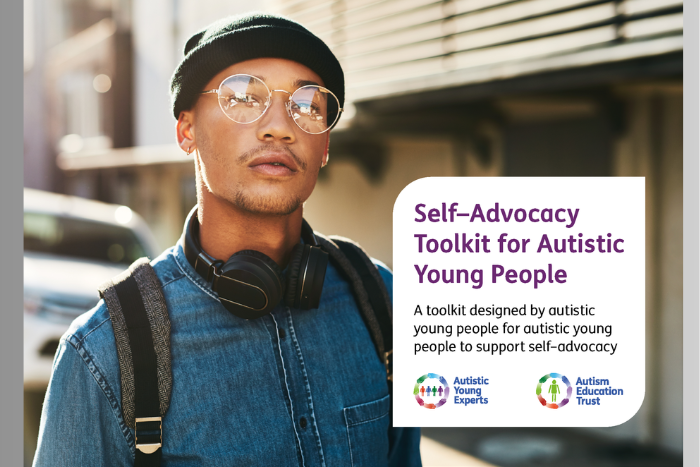
Improving autism practice in college
Improving autism practice in college to support placement sustainability and to avoid escalation of need

Good Autism Practice Report: Case Studies
The Good Autism Practice Case Studies support our Good Autism Practice Guidance. Offering evidence and impact, the report was first published in 2009 and a second iteration was published with updates in 2019.

National Autistic Society Education Report
The education system in England is simply not working for autistic children and we are calling on the Government to intervene with its upcoming review of the special educational needs and disabilities (SEND) system, due in the Spring.

Positive Relationships Between Home and School
Top tips for working with parents and ten ways schools can create better learning alignments with parents of autistic students

Exclusion: A Guide to Help Governing Boards
This resource outlines the legal requirements of the Equality Act 2010 for schools in relation to the exclusion of disabled pupils.

Early Years Professional Development Programme
The Early Years Professional Development Programme offers a set of training modules and resources for those working in various early years settings for children up to 5 years.
Schools Professional Development Programme
The School’s Professional Development Programme offers a set of training modules and materials for those working in schools for pupils aged 5-16.
Post-16 Professional Development Programme
The Post-16 Professional Development Programme offers training and resources to professionals working in various Post-16 settings for autistic young people above 16 years.
